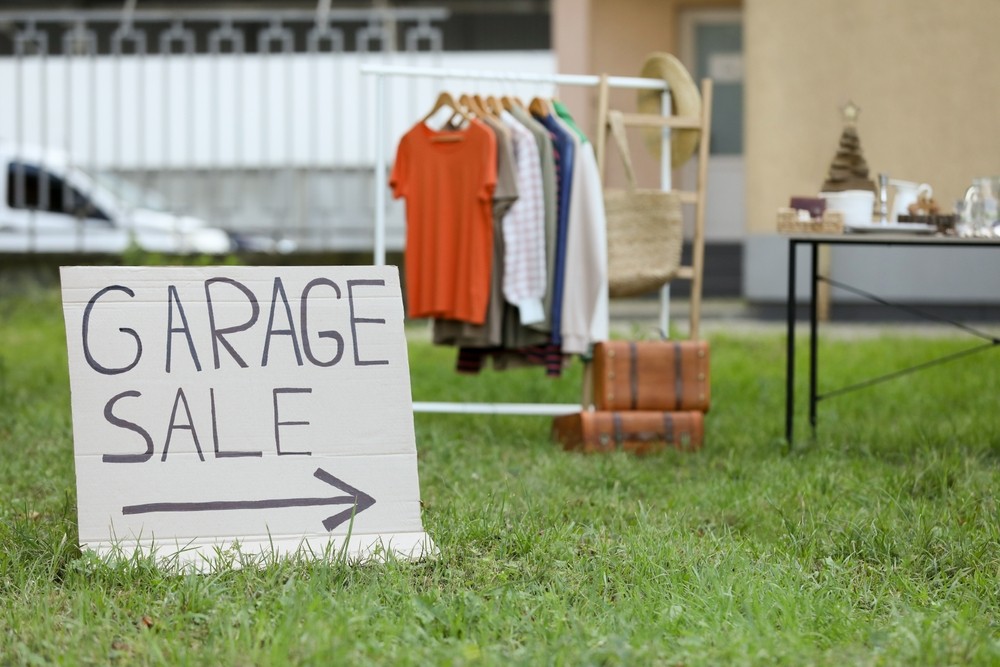Decluttering your home is not only a great way to create a more organized living space, but it’s also an effective strategy to make some extra cash. By selling unwanted items, you can both reduce clutter and contribute to your financial well-being. Whether you’re preparing for a move, reorganizing your current living space, or simply wanting to clear your home of things you no longer need, decluttering can add a world of difference.
Begin with a Decluttering Plan
To embark on a successful decluttering mission, you need a clear, actionable plan. Begin by identifying which areas of your home need attention. It’s usually best to start with smaller, more manageable spaces like closets, a single bedroom, or perhaps the basement. Deciding where to start is key in preventing the entire process from feeling overwhelming.
Once you’ve identified the starting point, allocate specific time blocks for decluttering. This might be an hour or two each day or a few focused weekends. Consistency is crucial. Make sure your timeline is realistic to maintain momentum without burning out.
Categorize Your Items
As you begin decluttering, sort items into different categories:
- Keep: Items you need or love and want to keep.
- Donate: Items in good condition but no longer needed, which can be donated to charities.
- Sell: Items that have value and could be sold to generate some income.
- Recycle: Items that cannot be sold or donated but can be recycled to reduce waste.
- Discard: Items that are broken or unusable should be discarded responsibly.
This classification helps streamline the process and paves the way for more organized efforts in letting go of the items.
Research and Evaluate Items for Sale
Before you start listing items for sale, it’s essential to evaluate their value correctly. This involves a bit of research to ascertain the current market value. Platforms like eBay, Craigslist, and Facebook Marketplace are excellent resources to know how much similar items are selling for.
Consider the condition, age, and brand of the item, as these factors significantly influence how much someone might be willing to pay. For items like collectibles or antiques, consider consulting an expert or appraiser to get an accurate value. Understanding the value helps set a competitive yet fair price, increasing your chances of making a sale.
Choose the Best Selling Platform
Selecting the right platform can make a significant difference in how quickly and profitably you can sell your items. Here are a few popular options to consider:
- Online Marketplaces: Websites like eBay, Amazon, and Etsy are excellent for reaching a wide audience. eBay is particularly good for auctions and rare items, while Etsy is ideal for handmade or vintage products.
- Local Classifieds: Platforms like Craigslist or Facebook Marketplace allow you to sell directly within your local area, reducing shipping costs and efforts.
- Specialty Sites: For specific categories like electronics, Gazelle or Swappa can be used, while Poshmark or Depop can work well for clothing.
- Garage Sales: If you prefer not selling online, organizing a garage sale requires little overhead and can be a fun community activity.
Create Compelling Listings
A compelling listing can significantly influence the sale. Start with high-quality photos that show the item from various angles and in good lighting. Make sure the images are clear and highlight the item’s features and condition.
The description should be detailed and honest, outlining any flaws or imperfections. Use keywords that potential buyers search for and make sure to include brand names, sizes, and other critical specifics. Also, ensuring a competitive and clear pricing strategy can help in attracting more buyers.
Set Up an Efficient Selling Process
Once your items are listed, maintaining an efficient process will aid in managing sales and fulfilling orders timely. Having a plan for packaging and shipping is crucial, especially with more fragile or unique items that require special attention.
Consider setting aside a specific area in your home for packing materials and shipments, which helps in keeping the process organized. Additionally, having a defined method for keeping track of sales records and communication with buyers is essential for smooth transactions and maintaining positive feedback.
Maximize Safety and Security
Your safety should be a priority when selling items, particularly on platforms that necessitate meeting buyers in person. Here are some tips:
- Public Meet-ups: Always arrange to meet buyers in public places, ideally during the daytime.
- Payment Security: Use secure methods of payment, such as PayPal, instead of cash when possible.
- Personal Information: Protect your privacy by not sharing personal details like your home address.
Donating and Recycling Remaining Items
For the items that don’t sell, consider donation. Many charities and local organizations welcome various items, and you might even be eligible for a tax deduction. Before donating, ensure the items are in good condition and remember to ask for a receipt.
For items that are not suitable for donation, recycling is an environmentally friendly alternative. Many recycling centers take electronics and metals, while local initiatives might have specific programs for textiles, glass, or other materials.
Reap the Benefits
The benefits of decluttering transcend financial gains. A clean, organized space can reduce stress, enhance productivity, and provide a sense of control. The funds generated from sales can be allocated toward savings, paying down debt, or even funding a well-deserved treat.
Decluttering serves as a reflective process, helping you mindfully evaluate your consumption habits and make more conscious buying decisions in the future. By recognizing which items are genuinely necessary, you minimize waste and contribute to a healthier environment.
Evaluating how each item fits (or doesn’t fit) into your life encourages more intentional choices moving forward. Additionally, the enhanced understanding of selling can convert you into a savvy consumer, potentially turning you into an expert in recognizing valuable items at thrift stores or garage sales yourself.
Engaging in decluttering can essentially transform not just your home but your overall approach to quality of life and financial health. Treat it as an opportunity for growth and contribution by sharing what you no longer need while simultaneously securing extra income.
By taking these steps towards a more organized, efficient lifestyle, you enhance your home environment and create opportunities to sustainably manage resources, both financially and materially. This process, as structured, ensures that decluttering and selling unwanted items become not just about making extra cash, but about crafting a rewarding and sustainable way of living.



